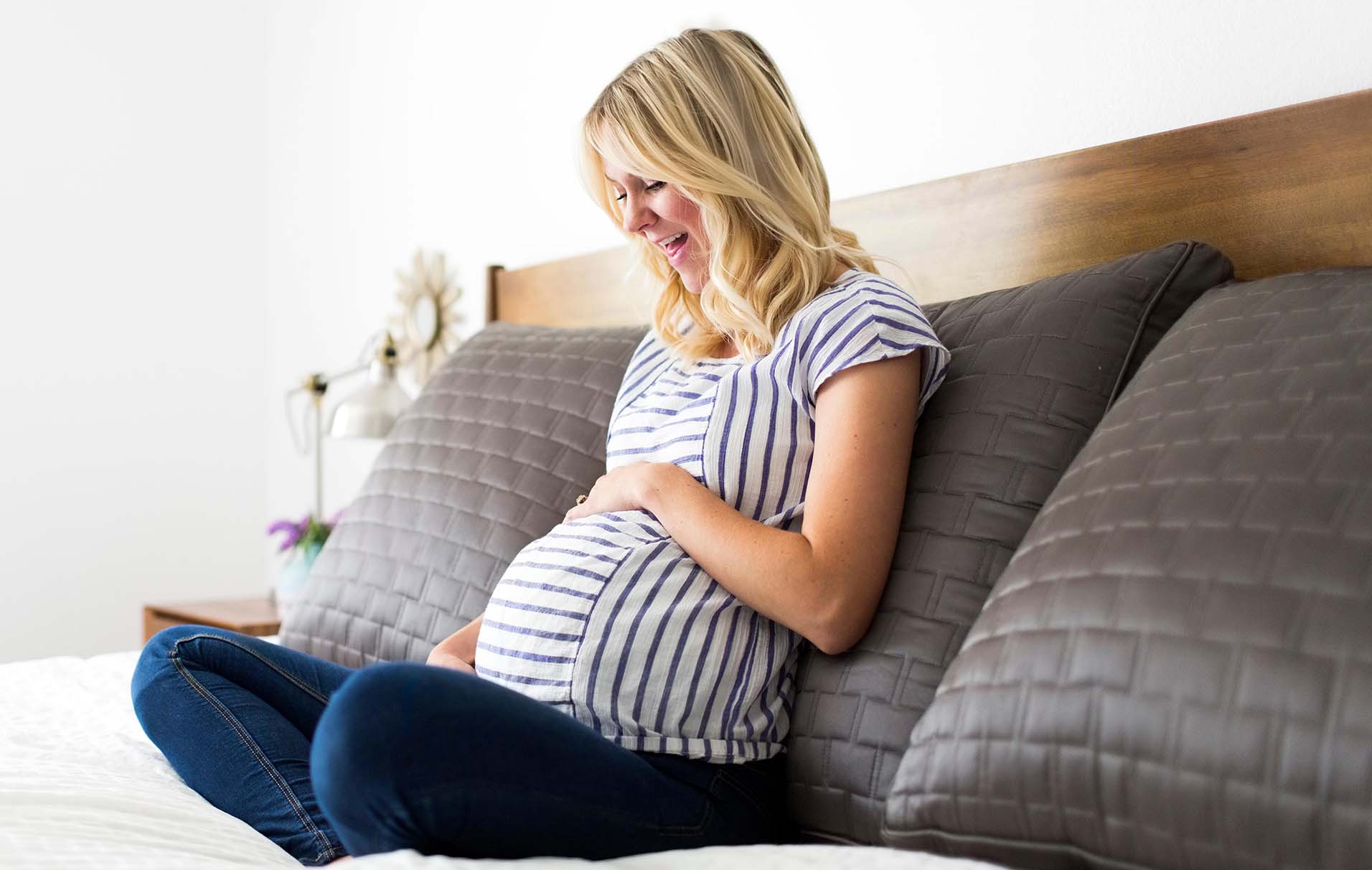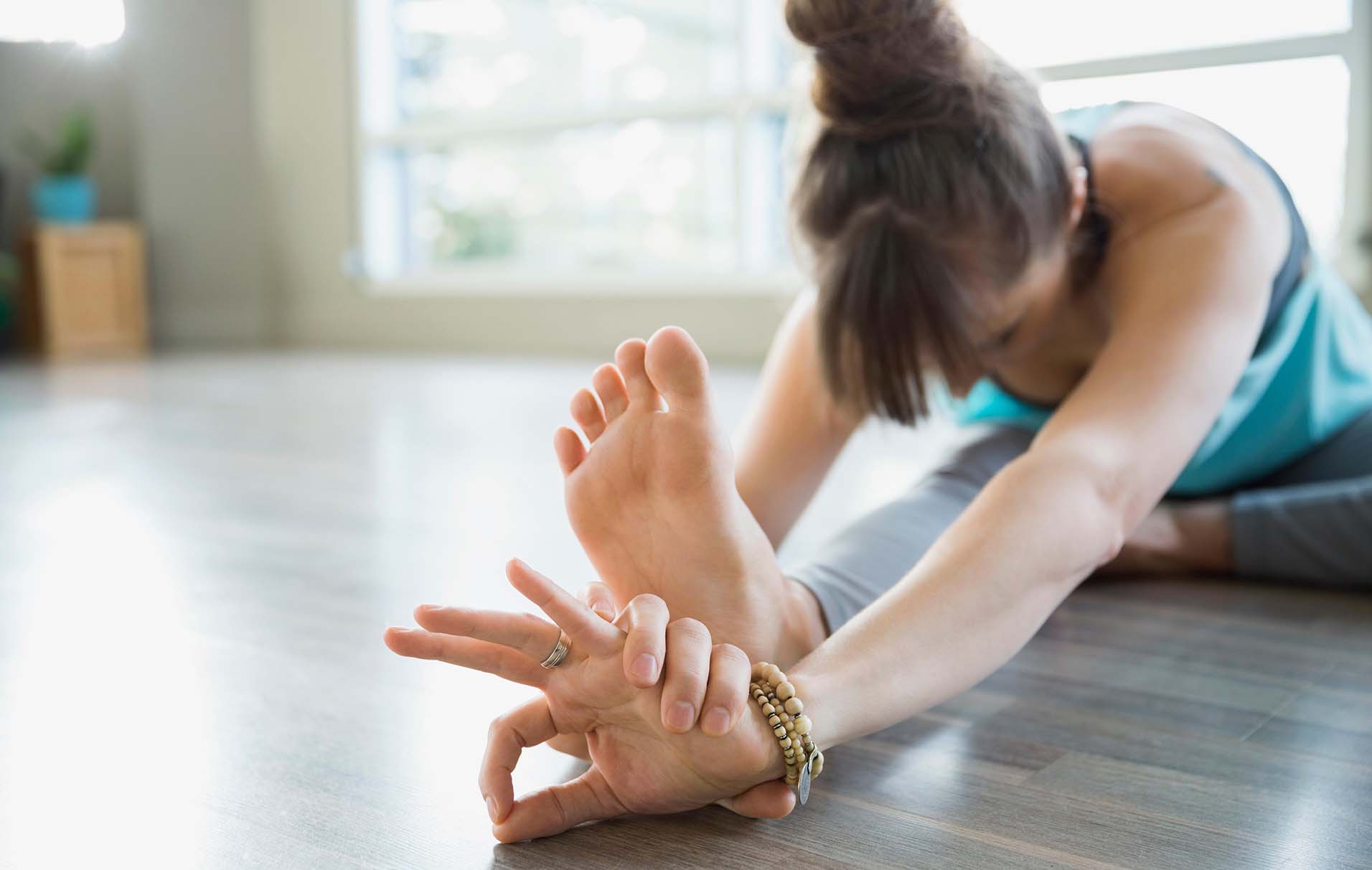How to get pregnant: 8 expert tips from fertility expert Larisa Corda
Wondering how to get pregnant or are in the midst of trying? This Morning's fertility expert Dr Larisa Corda shares her top tips for boosting your chances of conceiving.


Wondering how to get pregnant or are in the midst of trying? This Morning's fertility expert Dr Larisa Corda shares her top tips for boosting your chances of conceiving.
If you've been wondering how to get pregnant or increase your fertility, read our expert advice. Dr. Larisa Corda has put together a comprehensive list of advice on how to get pregnant, which forms the foundation of The Conception Plan, a natural method for getting pregnant for both men and women.
As well as tracking your fertile window with our ovulation calculator - you might also benefit from adding a few more 'fertility foods', to your diet, trying fertility yoga as well as a folic acid supplement, and looking at ways to boost sperm count
How to get pregnant
1. Watch your pregnancy diet
Eat well and focus on seasonal foods, and an organic diet. This way you’ll know the produce is far less likely to have been influenced by hormones, pesticides, added preservatives, chemicals and additives.
Have a majority plant based diet and get strict about what you put inside of yourself as studies show it influences not just your health, but the health of your baby through the process of 'epigenetics', where what you eat can influence the expression of certain genes in offspring.
2. Exercise to get pregnant

Exercise to help boost the circulation to your reproductive organs and also to help you maintain a healthy body and mind. Exercise - especially fertility yoga - can also help to reduce the stress and any pre-pregnancy anxiety you might be feeling. Be aware, that too much or being over-vigorous can do the opposite, so be mindful and aim for that which is realistic and achievable for you.
The generally accepted guidance is at least 150 minutes spread out over the week. This will also help you to keep you within the ideal weight range that is vital for fertility and helps to reduce the chance of miscarriage, as studies show.
Parenting advice, hot topics, best buys and family finance tips delivered straight to your inbox.
3. Avoid stress and consider alternative therapies
Reduce stress and keep caffeine (which is a stress activator) to a minimum. Though there is not as yet a proven association between stress and infertility, there is a wealth of literature to point to the problem of too much stress and activation of the fight or flight response, leading to an imbalance in hormones that affect fertility.
It also leads to lack of sleep, lowered libido, and an unhealthy appetite leading us to eat too much sugar, drink excessively, or smoke, all of which can reduce the chance of getting pregnant. Meditation, mindfulness, relaxation exercises, being outdoors in nature, having a bath, spending time with close friends, or a hobby can all help reduce stress, as can acupuncture, reflexology, hypnotherapy and reiki.
4. Get plenty of sleep when trying to get pregnant
Prioritise sleep and ensure your bedroom becomes a sanctuary that is conducive to sleep. It’s important to get enough rest when trying to get pregnant, to support your physical, emotional, and perimental health. This means clearing out the clutter, not using any electrical devices such as TVs and mobile phones before bedtime, and ensuring the room is dark enough to allow you to get the crucial 7-8 hours sleep a night that most of us need to be able to function well. The benefits of deep sleep to health are demonstrated in many studies.
5. Have frequent sex
Have sex often and throughout your cycle. Most people become too obsessed with using an ovulation calculator to track their fertile window when trying to get pregnant, and confine sex to that time. But as long as you’re having intercourse several times a week, there will be sperm available to fertilise the egg. This is because sperm can survive in the reproductive tract for several days. Recent studies suggest that sperm quality may actually improve with more regular sex.
6. Take a supplement
Get yourself on a good multivitamin supplement a few months before you start trying to get pregnant. For men looking to increase sperm count, a supplement rich in antioxidants like vitamin C, E, selenium, zinc and garlic can help. Women should look towards a vitamin supplement that delivers the required dose of folic acid, iodine and vitamin D. Omega 3 is also important for both men and women as it influences the development of the baby’s brain and IQ as is a probiotic with studies suggesting the growing importance of the microbiome of the womb in achieving pregnancy.
7. Stop smoking
You absolutely need to stop smoking to boost fertility, as this can cause damage to the lining of the womb, the eggs and sperm, but also adversely affect the health of your child, and cause all sorts of complications in your pregnancy. You also stop drinking alcohol - or cut right down, as it has also been linked to abnormalities in the baby.
8. Avoid pollutants
Be mindful of the toxic elements influencing your environment, from unfiltered water to plastic, to products you put on your skin or use around the house. These toxins can end up being harmful to our hormones that control fertility, as well as the eggs and sperm.
Always try and use products in their most natural state especially as some recent studies have also shown certain toxins can influence sperm DNA, which can be passed on to offspring and has been linked to obesity and other health issues in the child. In addition to which a recent Italian study has shown evidence of air pollutants potentially being linked to earlier menopause in women.
Dr Larisa Corda is an obstetrician and gynaecologist and one of the UK’s leading fertility specialists
Related features:
- Early signs of pregnancy
- Best time to get pregnant
- Why can't I get pregnant?
- Fertility foods to boost fertility
- I want a baby and he doesn't

Dr Larisa Corda is an obstetrician and gynaecologist and one of the UK’s leading fertility specialists. She qualified from Imperial College London with her training taking place in both the UK and Australia. This has seen her gain an understanding and appreciation of gynaecological, obstetric and fertility issues across a wide international population. Larisa believes in a holistic approach to treating a patient that addresses many lifestyle factors as well as a combination of Eastern and Western medical approaches. Larisa is ITV This Morning’s and Channel Mum’s Fertility Expert, where she can regularly be seen on screen sharing her expert advice.